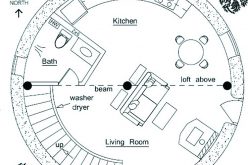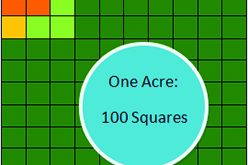
Amanda Bancroft
Making Ripples
Perhaps one of the most powerful things anyone can do for the world is to be completely honest about what they can and can’t do to make a difference. Since nobody’s perfect, everyone is going to fall short somewhere, and possibly the worst thing we can do for the environment and people worldwide is to lie about why that happens.
Sometimes it’s tempting to say I didn’t help because it doesn’t really matter, rather than admitting the truth of the complexities of a messy, beautiful life which kept me from helping. For example, fair trade and organic products can be too expensive because some people don’t have enough money to pay fairly for certain products, not because farmers don’t deserve fair pay and the price should go down. Sustainable lifestyle choices can be challenging to implement because some people don’t have the time or resources to make changes, not because living sustainably is impossible or not needed.
It is one thing to say, “I can’t afford to do the right thing right now. I’m going to make a long-term plan to get there whenever I can. Maybe I’ll never make it but it’s important to try.” It’s quite another to say, “The right thing to do is the wrong thing to do, because it is expensive and solutions don’t matter to me unless they’re cheap and convenient.” There’s dignity in saying something matters very much, and I just can’t address it right now. The honest approach is much less harmful than convincing others around us to stop caring about it because we ourselves couldn’t find the time or money to do what we know in our hearts is the right thing.
Intellectual honesty also makes a big difference in convincing others that our cause is valuable. On YouTube, video blogger “the1janitor” has inspired a large following of over 87,000 subscribers and frequently posts short videos approaching a wide variety of topics from an intellectually honest position. “You don’t have to be intellectually dishonest to discuss social justice,” the1janitor says. “In fact, I’d argue that if you want social justice, being opportunistic and disingenuous is counter-productive. If your goal is social justice, it’s important to be honest and clear. If fudging statistics and making up definitions was necessary in order to convince people, you probably didn’t have a strong enough point to begin with. But I don’t think it is necessary to do that, because social injustice is a real thing.” He explains that on both sides of the coin across every issue, people tend to fib about what’s happening or simplify issues and construct an evil enemy in order to make their point more convincing. Honestly conveying the complexity of any issue makes it less divisive and more appealing to a broader range of people.
Amanda Bancroft is a writer, artist, and naturalist building an off-grid earthbag cottage for land conservation on Mt. Kessler. She and her husband Ryan blog about their adventures and offer a solar-hosted online educational center on how to make a difference with everyday choices at: www.RipplesBlog.org.










